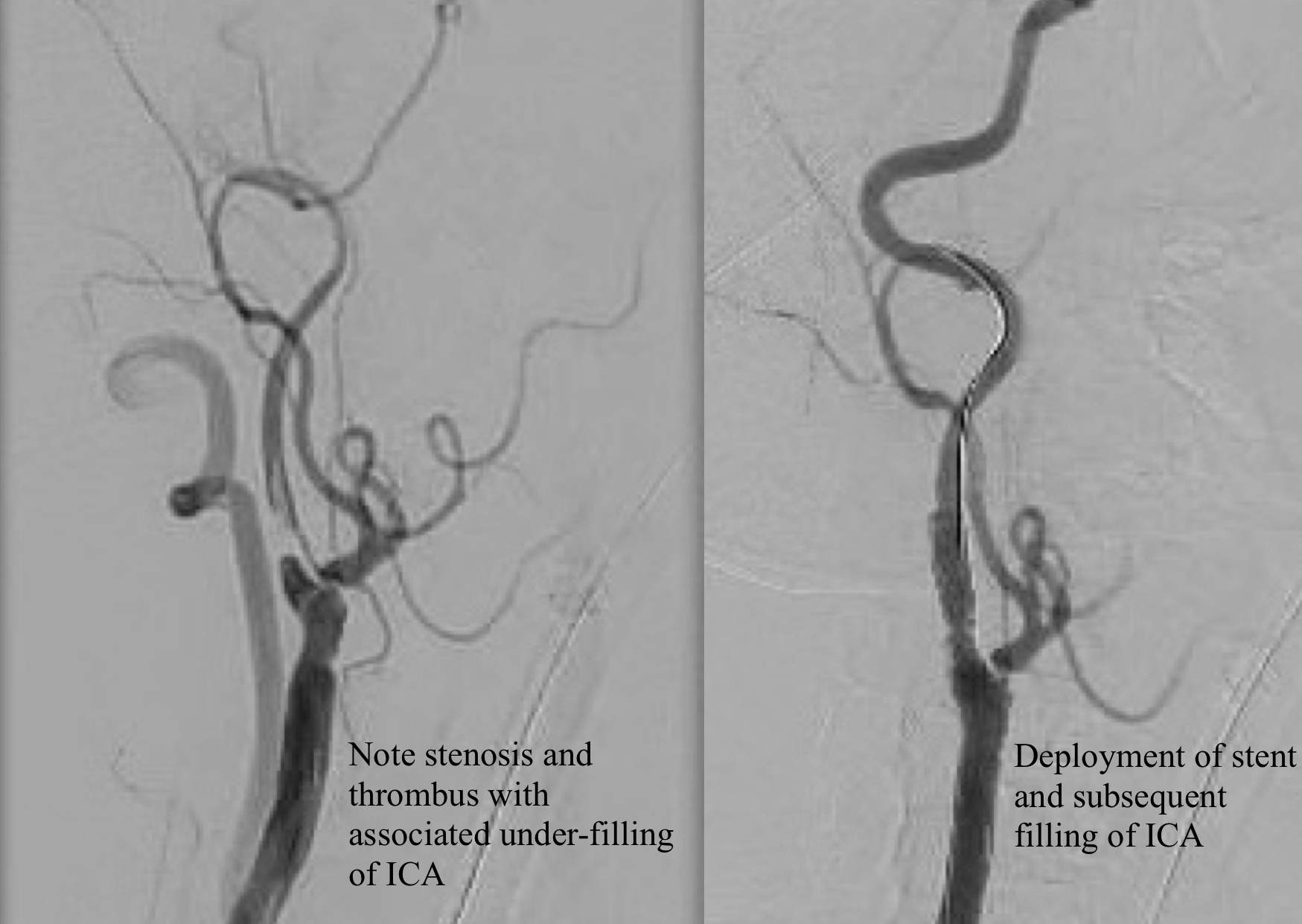Use of Transcarotid Artery Revascularization to Treat Symptomatic Carotid Artery Stenosis Associated with Free Floating Thrombus
Jason Hwang, Sashi Inkollu.
West Virginia University, Morgantown, WV, USA
Demographics 67 -year-old active female with past history of right carotid endarterectomy (CEA) and mechanical mitral valve replacement presented with recurrent episodes of left upper and lower extremity weakness.
History After one week of persistent symptoms suggestive of stroke in evolution, a CTA neck was performed at an outside facility. High grade recurrent stenosis of the right cervical internal carotid artery (ICA) with free floating thrombus was found. She was transferred to us for further management. On arrival, she had waxing and waning symptoms of left upper and lower extremity weakness and mild slurring of speech.
Plan Right Transcarotid Artery Revascularization (TCAR) was performed urgently with open exposure of the right common carotid artery using a small incision, percutaneous exposure of the left common femoral vein, and flow reversal using an external shunt and filter, without reversal of INR. The lesion was predilated with a 4 x 30 mm balloon and stented with a 7 x 30 mm self-expanding stent. She had near complete neurologic recovery in the immediate postoperative period with resolution of left-sided weakness and speech deficits. She had a mild residual left-sided drift. Her exam was normal at the 1-month postoperative visit with no significant residual ICA stenosis on duplex.
Discussion Redo CEA in the setting of free floating ICA thrombus can be associated with a significant risk of stroke and cranial nerve injury. Reversal of INR in the setting of a mechanical mitral valve can increase the risk of thromboembolic events. We describe the first successful use of TCAR in the setting of a free floating ICA thrombus. Further investigation is required to better evaluate the safety of this technique with possible use of thrombectomy devices in such challenging clinical scenarios.

Back to 2019 ePosters
